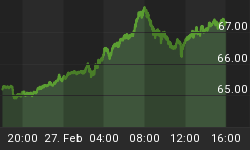Today's Wall Street Journal [May 1, 2006] carries a piece titled, Lumbering Along [pg. A-14], editorializing the significance of an agreement last week to settle the long-waged, Canada - U.S. soft wood lumber dispute.
According to the Journal,
"The accord is a political victory for President Bush and Canada's new Prime Minister Stephen Harper, who had vowed to resolve the longstanding dispute that had soured trade relations between the two countries -- each of which is the other's biggest trading partner. The good news is that the lawyers go away and tariff duties are lifted."
That's the good part - the headline, but then the Journal article goes on to examine some of the "hidden costs" of the agreement.
First, according to the Journal, the negotiated settlement serves to put a "floor" on lumber prices in the U.S. at $355 per thousand board feet. Below this price threshold, Canadian lumber imports to the U.S. are punitively "taxed" increasingly more - the lower the price goes. The Journal adds that this "hardly helps make housing more affordable amid rising mortgage rates."
Additionally, the settlement allows for the U.S. lumber industry to keep 1 billion of the 5 billion in illegal duties collected since 2002 - with half of this "windfall" going directly to the [U.S.] domestic players that filed the protective action in the first place.
Perhaps even more unsettling about this "resolution" is that it clearly demonstrates the failure of NAFTA [North American Free Trade Agreement] in general and specifically its dispute resolving mechanisms. The softwood lumber dispute had hearing under the guise of this "dispute resolving mechanism" where an international resolution committee had ruled in Canada's favor on this issue on more than one occasion.
Also worthy of mention, because the Journal piece refuses to come right out and say it,
"Canadian lumber firms would be held to a 34 per cent share of softwood lumber in the U.S. market, which is roughly Canada's current share. That share would be broken down regionally, based on 2004-05 exports."
We only learn of this 'hard cap' when we peruse Canadian coverage of the same incident, which was "front page news" instead of being buried on page A-14.
Trade deals like NAFTA epitomize or embody the globalist agenda. In one fell swoop, whether consciously or not, the globalist agenda has been dealt a severe blow. As the WSJ reveals,
"There is no way to brush off the dangerous precedent set here by the assault on Nafta and the arrogant disregard for its dispute-settlement mechanism. The lesson U.S. trading partners will take away -- and not just Nafta partners -- is that antidumping and countervailing-duty laws are now official U.S. tools of managed trade. A lawsuit strategy can bury the competition under years of appeals -- during which illegal trade barriers can provide years of protection -- until it cries uncle."
The resolution of the Canada / U.S. softwood lumber dispute has created a degree of confusion and raises several questions. Will this sounding of the "protectionist bell" extend to other areas of trade - like oil, natural gas and water? Or, maybe these negotiations were intended to send a blunt "proxy message" to the Chinese? Who knows, perhaps the softwood lumber issue and its resolution is a case of over-reach?
At the end of the day, it could be argued that the imposition of tariffs and other protectionist measures are responsible for the destruction of wealth as opposed to its nurturing or creation. But perhaps we should not be surprised with this development - given the state of disrepair of our global "fiat monetary system" - some, like Greenspan mentor Ayn Rand, might argue that it's simply a progression:
"Whenever destroyers appear among men, they start by destroying money; for money is man's protection and the base of a moral existence. Destroyers seize gold and leave to its owners a counterfeit pile of paper. This kills all objective standards and delivers men into the arbitrary power of an arbitrary setter of values. Gold is an objective value, an equivalent of wealth produced. Paper is a mortgage on wealth that does not exist, backed by a gun aimed at those who are expected to produce it. Paper is a check drawn by legal looters upon an account which is not theirs: upon the virtue of the victims. Watch for the day when it bounces, marked, 'Account Overdrawn.'"
Ayn Rand from "Atlas Shrugged" 1957















